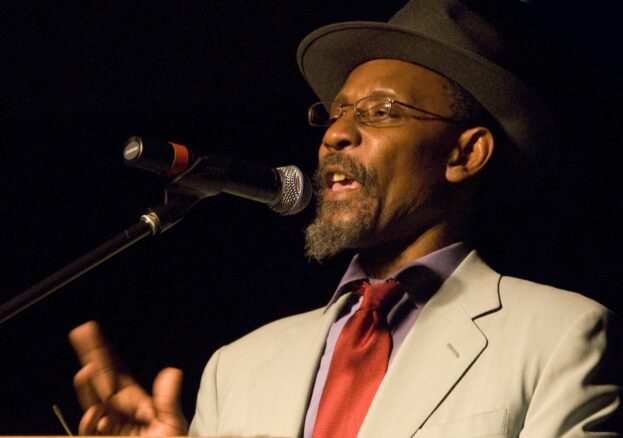
Linton Kwesi Johnson is a British-Jamaican poet, musician, and political activist, born on August 24, 1952, in Chapelton, Jamaica. He is known for his pioneering work in dub poetry, a form of spoken word poetry that emerged in Jamaica in the 1970s and incorporates elements of reggae music.
Johnson moved to the UK in 1963 and studied at Goldsmiths College in London. He became involved in left-wing politics and activism, particularly around issues affecting the black community in Britain. He began writing poetry in the early 1970s, and his first collection, “Voices of the Living and the Dead,” was published in 1974.
In 1977, Johnson released his debut album, “Dread Beat an’ Blood,” which combined his poetry with reggae music and addressed themes of racism, police brutality, and political oppression. He continued to release albums throughout the 1980s and 1990s, including “Forces of Victory” (1979), “Bass Culture” (1980), and “Tings An’ Times” (1991).
Johnson’s work has had a significant impact on the development of dub poetry and the broader landscape of British poetry and music. He has received numerous awards and honors for his contributions, including the Golden PEN Award in 2012.
In addition to his artistic work, Johnson has remained active in political and social activism. He has campaigned against racism, police violence, and other forms of injustice, and has been involved in movements supporting the rights of immigrants and refugees in the UK.
Some notable quotes from Linton Kwesi Johnson include:
- “In a racist society, it is not enough to be non-racist, we must be anti-racist.”
- “The struggle for justice and equality is not a struggle against individuals. It is a struggle against systems and structures that perpetuate oppression and inequality.”
- “Poetry is a weapon in the struggle for social justice. It is the voice of the people, the cry of the oppressed, and the conscience of the nation.”
- “Our lives begin to end the day we become silent about things that matter.”
- “When we fight for justice, we are fighting for the future. We are fighting for the world that our children will inherit.”
